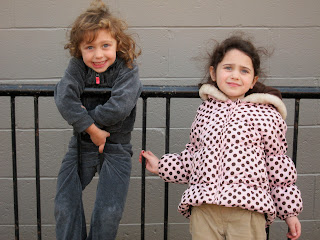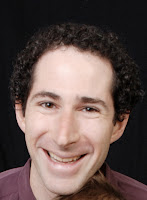“I want to use my tzedakah money to buy new underwear!”
These words were spoken by my 7- year- old last week as we discussed what to do with the money in her tzedakah box. Huh?
In our family, we have three tzedakah boxes: one that my husband and I share, one for our 7year- old, Eva, and one for our 3- year- old, Josie. The tzedakah boxes sit in our dining room, lined up on a side table next to Eva and Josie’s piggy banks. Every Friday before Shabbat, we give each daughter four quarters, two for the piggy bank and two for the tzedakah box. My husband and I likewise put two quarters in our own tzedakah box. It’s not a lot of money, and it is not our only vehicle for charitable giving. But giving tzedakah each week serves an important purpose: teaching our children that we have a responsibility to share some of what we have with people who are in need.
The concept of tzedakah can be a little abstract for children. Sure, putting coins in boxes is a hands-on experience, but it can be hard for children to see the link between putting money into a box at home and helping someone in need out there in the world. So we try to involve the girls in deciding what to do with the money we have collected. (So far, this has been a conversation only with Eva. Josie, who turns three this month, has been too young.)
I find that using the money to purchase tangible items tends to seem more “real” to the girls than donating the money itself. For example, once we used the money to buy groceries that we contributed to our synagogue’s food drive. As Eva and I shopped for the groceries together, I described a fictitious family with children about her age and asked her to choose foods she thought the children would like to eat, hoping this might help her understand what we were doing.
 |
| Rachel with her two daughters |
About two years ago, we used our tzedakah to buy toys to donate to Cradles to Crayons (http://cradlestocrayons.org/boston), an organization which collects new and gently used “essential items” and distributes them to children in need. When we went to deliver the toys, Eva expressed interest in volunteering there, so for the past two years we have been working once a month at the Cradles to Crayons Giving Factory. This child-friendly organization is a great place for kids to volunteer (and it is probably worthy of its own blog post at another time). We sort through clothing donations, put together outfit packs, clean and sort toy donations, clean shoes, etc.
And now this brings us back to underwear. This year, when it was time to think about what to do with our tzedakah, Eva started the conversation by saying, “I know exactly what I want to do with my tzedakah. Do you remember when we were putting together outfit packs at Cradles to Crayons, and they didn’t have enough underwear for all of the children? I want to use my tzedakah to buy underwear so they have enough!” Her eyes shone with excitement about her new idea.
In years past, she has suggested that we buy toys or games for the children – things that are fun to buy and feel good to give. Underwear is not an exciting thing to buy for another child, but Eva recognized a need in the community and wanted to use her own resources to help meet that need. This year Eva will feel good about her tzedakah choice not because she had fun shopping, but because she helped meet a real need.
We both feel good about her tzedakah choice…and we are both genuinely excited about underwear!






























